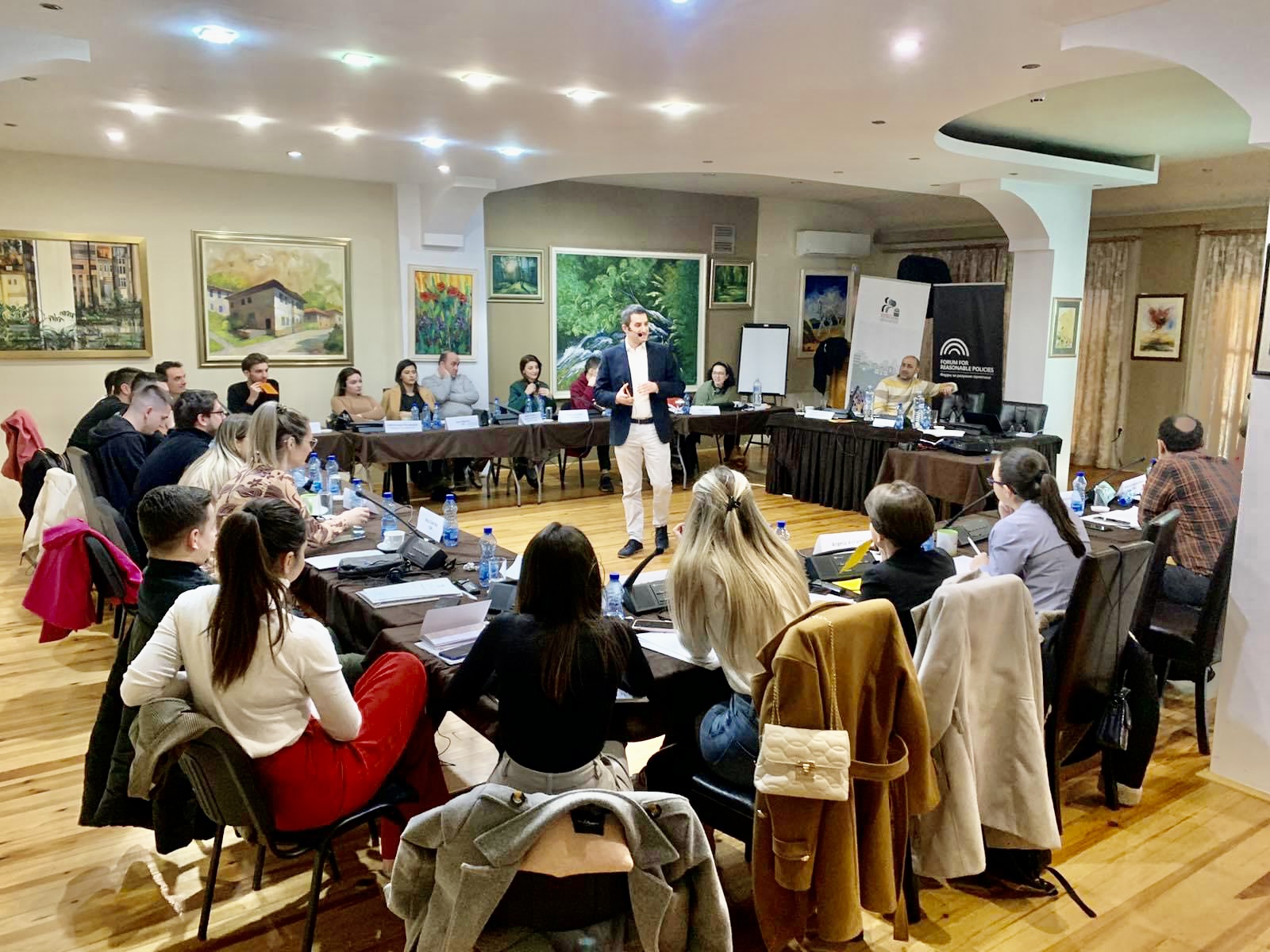23 participants from the youth of 10 political parties in the country and one civic initiative, took part in the third module of the Academy for Public Policy (APP), entitled “You Are Not Alone!” (Thriving in a multi-party and plural world).
During the first day, the participants learned about “Understanding the others/identity politics”. They discuss the importance of inter-ethnic relations in multi-ethnic societies, identity politics beyond ethnic cleavages, cancel culture and its ramifications.
Whereas, on the second day of this module, the participants attended the following sessions:
“You are not alone! The Craft of Compromise” participants learned how to communicate with their counterparts in an ever-dividing political context. They also learned about the importance of compromise in a conflicting society, taking into account the interests, values and ideology of the others.
“Oppositions: Encountering the Others”, PART I and II were for real-time debating exercises on current topics in politics, challenging the policies-avoiding ad hominem confrontations.
On the last day of the workshop, the first session was dedicated to the development of policy documents and community engagements. During this session, the participants elaborated on the state of the policy documents that they have developed, the identified problem in the community/municipality, actions taken by them, expected results and the engagements with the community. This assignment, that is being developed since the second workshop of the APP, aims at developing the participants’ capacities for evidence-based policy development process, focused on the citizen’s needs. These activities will give the participants an opportunity to apply the gained knowledge and skills, in real life situations and through engagement with citizens.
At the last session, the participants were introduced to “Varieties of electoral systems: explaining the nuances”, where participants learned about the different types of electoral systems’ advantages and disadvantages.

